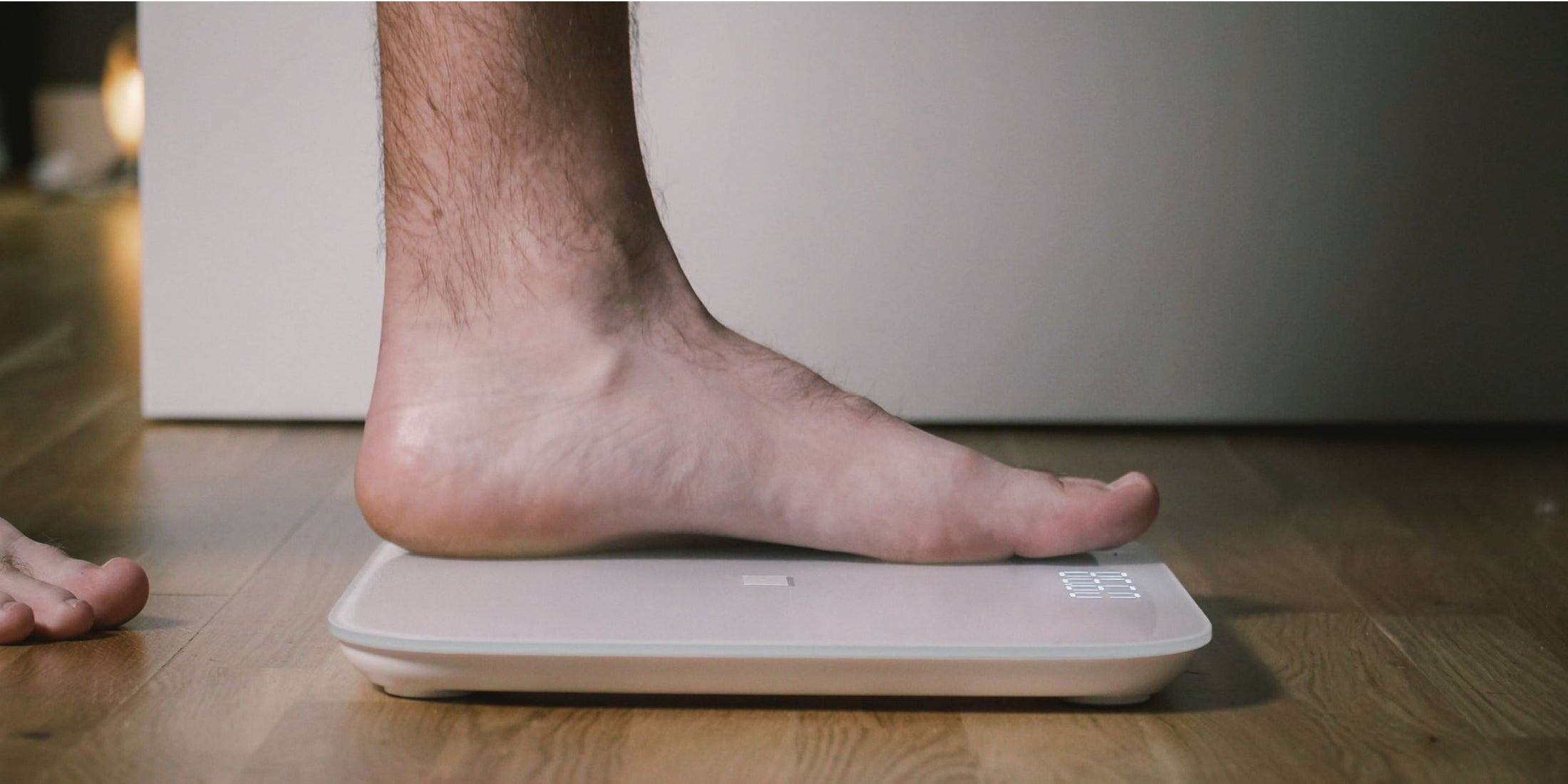Are you looking to gain weight? Perhaps you’re thinking about eating as much food as you can per day under the belief that the more calories you take, the more likely you are to gain weight. However, you might have a busy schedule and reaching the minimum number of calories needed is your target goal. Don’t worry! We’ll delve into this question while also tackling other important weight-related matters.
How to Gain Weight Healthily?
Before finding out how many calories you need every day to gain weight, you need to know how to do it the healthy way. Generally speaking, it requires a balanced approach where you focus on eating the right number of calories and nutrients. Of course, it’s always tempting to indulge in high-calorie junk foods. After all, the higher the calories, the faster you’ll gain some pounds. However, it is equally essential to go for nutrient-dense foods that are good for your overall well-being.
The whole gist of calories and weight gain is that your daily caloric intake should surpass the amount your body burns. The general recommendation to increase your body weight is to aim for a surplus of 250 to 500 calories per day for a gradual and healthy weight gain. Foods rich in protein, healthy fats, and complex carbohydrates are all excellent choices to add calories while ensuring a balanced diet.
In addition to nutritious foods, incorporating strength training exercises into your routine can help promote the growth of lean muscle mass. Doing weightlifting or resistance training stimulates muscle development and increases the demand for calories, leading to you eating more. Ideally, you should aim to exercise at least 2-3 times per week. Combining both increased calorie intake and regular strength training will surely support healthy weight gain.
Examples of Foods Rich in Protein, Healthy Fats, and Complex Carbohydrates
Protein
Healthy Fats
Complex Carbohydrates
|
How Fast Can I Gain Weight?
Higher daily caloric intake and strength training will help you increase your weight gradually. However, you might want to know how fast you can gain weight without risking your body.
The rate at which an individual like you can gain weight varies based on several factors. Aside from calorie intake, genetics, stress, sleep patterns, physical activity, and metabolic rate are some of the many aspects you need to consider. Therefore, it is difficult to determine the specific details regarding your weight gain speed.
It is recommended to consult with a healthcare professional, as they can help assess your body and provide you with a personalized diet plan.
How Long Will It Take to Gain Weight?

Perhaps you have an event to attend and the outfit you want to buy just is a bit too large. So, you might be wondering if you still have enough time to gain some weight. Much like the previous section, there are factors that influence the time it takes for your body weight to increase. One of the most important concepts to know is the setpoint weight. Basically, it refers to the weight range that your body is accustomed to and will naturally gravitate towards it and maintain it if possible. This natural body function affects the progress of weight gain journey.
Aside from it, your appetite and metabolism all play a role in determining the time it takes for you to gain weight. Eating excess calories results in these functions adjusting to compensate for the increased intake or can also affect how many calories they need to consume per day.
It is important to note that the time it takes to gain weight will vary from person to person due to these factors. Some individuals may see faster results, while others may take longer to achieve their goals. Patience and consistency are key when it comes to healthy weight gain.
Why People Want to Gain WeightMuch like how individuals have varying reasons to lose weight, there are also plenty of reasons why people would love to increase their body weight. Here are some examples:
|
What Should I Not Do to Gain Weight?
Increasing your body weight is not as simple as eating high-calorie foods, healthy or not. It is important to focus on healthy strategies rather than unhealthy practices. Here are some tips to help you gain weight healthily:
Avoid junk food: While your favorite potato chips or cookies may be high in calories, it lacks essential nutrients which are also necessary to supporting healthy weight gain. Choose nutrient-rich foods instead, such as fruits, vegetables, whole grains, lean proteins, and healthy fats.
Don't rely solely on calorie-dense foods: While it's okay to include calorie-dense foods like peanut butter in your diet, it is crucial to maintain a balanced diet that provides all the necessary nutrients. Remember, calories are not the be-all and end-all of increasing your body weight.
Avoid excessive consumption: While the occasional chips or sweets are fine. Overeating unhealthy foods can have negative effects on your health, leading to weight gain accompanied by increased body fat. This can increase the risk of obesity, heart disease, and other medical conditions.
Don't disregard portion control: Even when trying to gain weight, it is important to consume the appropriate amounts of food. Consuming excessive calories without considering portion sizes can lead to unhealthy weight gain and improper distribution of body weight. Therefore, consider meal prep to help you reach your target caloric intake for each day.
How Many Calories Should You Eat in a Day to Gain Weight?

Now, knowing the exact number of calories you need to eat in a day for weight gain involves calculating your Basal Metabolic Rate (BMR), which is the number of calories needed to maintain basic bodily function.
Your basal metabolism rate is produced through the following formula:
- Men: BMR = 88.362 + (13.397 x weight in kg) + (4.799 x height in cm) – (5.677 x age in years)
- Women: BMR = 447.593 + (9.247 x weight in kg) + (3.098 x height in cm) – (4.330 x age in years)
Aside from the given formula, you can also use RENPHO Elis 1 Smart Body Scale to automatically do the job for you. Alongside 12 other body metrics like BMI and body fat, you don’t have to do any math to get your body composition.
Once you have it, you can determine the number of additional calories required to support weight gain through a calorie calculator, which considers your age, sex, height, weight, activity level, and weight goal to provide an estimate.
If you aim to gain 1 kg (2 lbs) in a week, you need to create a calorie surplus of approximately 1000 calories per day. This means consuming an additional 1000 calories on top of your daily calorie expenditure. Keep in mind that weight gain should be gradual and healthy, so it's important to focus on gaining lean muscle mass rather than just increasing body fat.
Takeaway
So, when aiming to increase your current weight in a healthy manner, it is important to start by determining the number of calories needed, which can be calculated using your BMR through formulas, online calculators, or smart body scales. However, it's crucial to recognize that factors such as genetics, stress, sleep patterns, physical activity, appetite, and metabolism also play significant roles in achieving your desired weight. Taking these factors into consideration alongside your daily calorie intake will help you develop a comprehensive approach to reaching your target weight while promoting overall well-being.
Note: If you have specific health concerns, please consult your healthcare provider before making dietary changes.
Renpho Health Tips
-

How Technology Can Be Used in Smart Devices to Boost Health & Wellness
July 11, 2023
Read more >
-

How Food Scales Take Meal Prep to the Next Level
June 18, 2023
Read more >
-

5 Reasons You Need SMART Goals for A Healthy Diet Plan
June 26, 2023
Read more >
-

How to Use Your Smart Scale's Multiple Users Feature
May 31, 2023
Read more >
-

Healthy Diet Tips - Do Carbs Make You Gain Weight?
November 21, 2022
Read more >



































